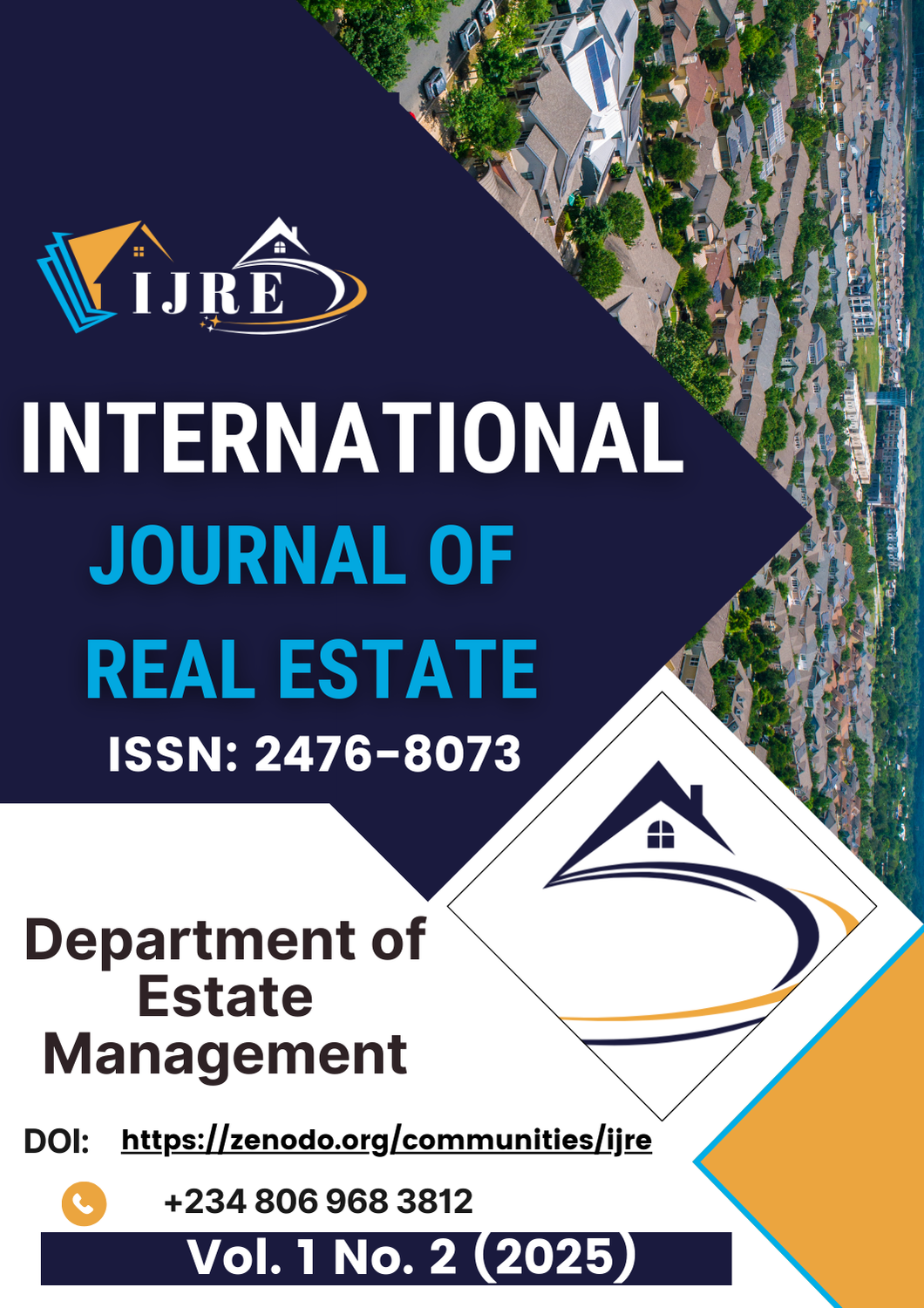Development of Mobile Application Software for Property Valuation in Nigeria
DOI:
https://doi.org/10.5281/zenodo.15313976Keywords:
Real estate, property valuation, mobile application, area measurement, valuation reportAbstract
The conventional methods of property valuation in Nigeria sometimes face issues such as subjectivity, inefficiency, and lack of data access, leading to inconsistent valuations/valuation reports. This research tends to fill these gaps by providing a mobile application that integrates fundamental valuation methods: Comparative, Profit, and Cost methods in a user-friendly interface. The study utilized descriptive statistics such as simple percentage frequency table and the development of mobile application software using Flutter. Major features of the software include automated data input, image capture, and immediate report generation. There is also uniform support (100%) for the need of a mobile application software in Nigeria's real estate industry. The Depreciated Replacement Cost method is the most often utilized valuation technique. The study also shows that valuation approaches requires various data inputs, with "Location," "Property Type," and "Operating Expenses" being essential, while "Cost of Construction" and "Tenant Capital" are of lesser importance. The research led to the development of a mobile application software, S-Value, using Flutter. The app is integrated with Google Maps for precise property measurements and includes features such as image capture, selection of valuation methods, and automated valuation report generation. Testing confirmed that S-Value improves the efficiency of property valuations. However, challenges related to data accuracy and market fluctuations were identified, highlighting the need for continuous updates to enhance reliability. The study reveals that the mobile application greatly supports the valuation process, however, more adjustments are needed to ensure data quality and flexibility to market fluctuations. The study recommends that to augment the efficacy of the mobile application software, it is advisable to incorporate sophisticated validation tools, including AI-driven image recognition and automated boundary correction algorithms, to enhance precision in property measurements and user-submitted data. Consistent updates, and integrating external real estate market data or expert evaluations, are important to preserve the valuation model's conformity with Nigeria's evolving real estate market. Additionally, training programs must be implemented to guarantee users are adept with the app's features, enabling them to maximize its benefits in their operations.
Downloads
Published
Issue
Section
License

This work is licensed under a Creative Commons Attribution-ShareAlike 4.0 International License.





